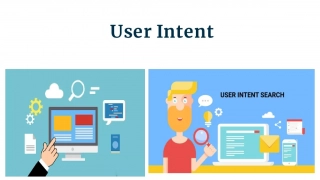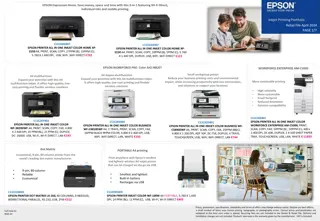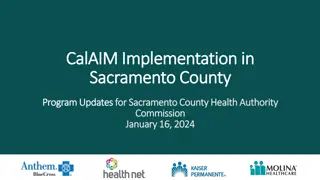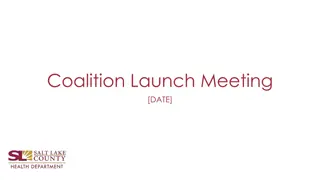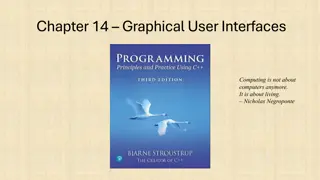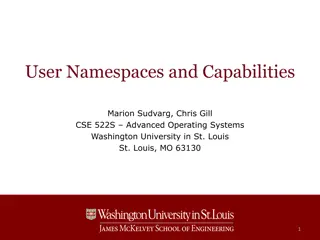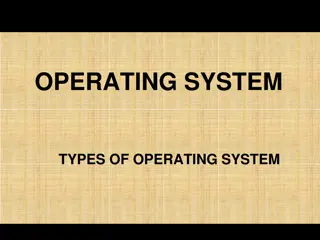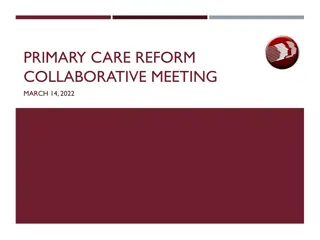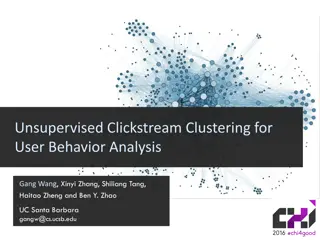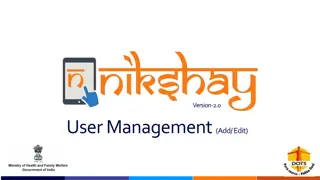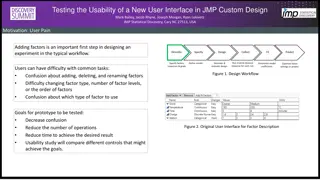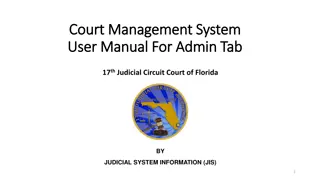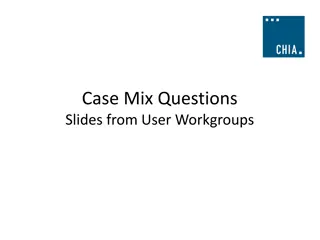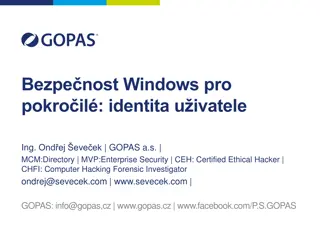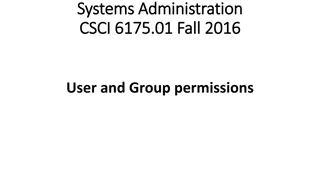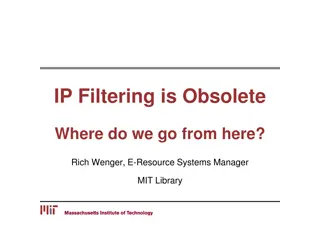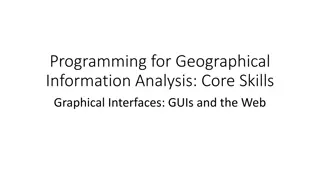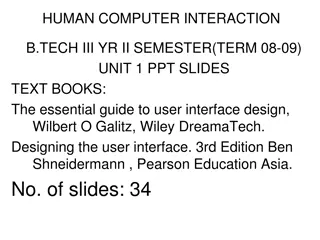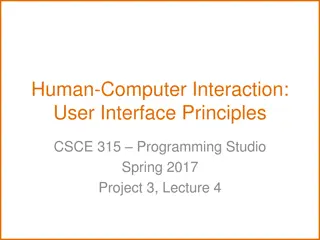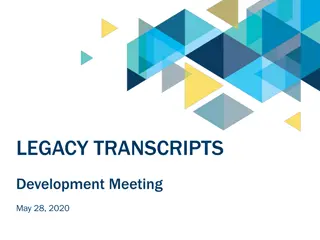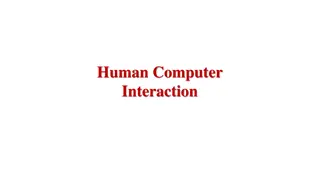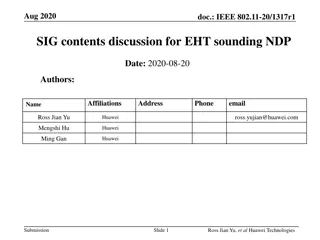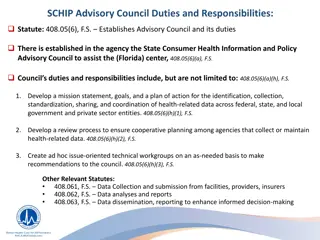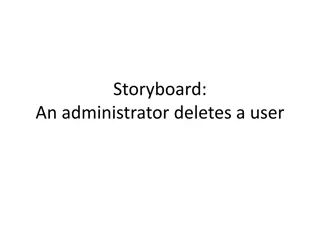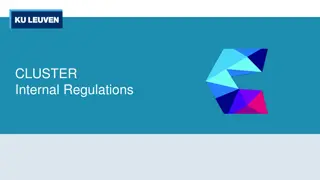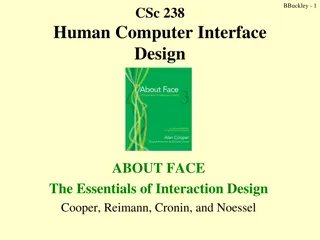Maximizing Impact: The Role of Rich Snippets in SERPs"User Intent
User intent, also known as search intent, refers to the underlying goal or purpose a user has when performing an online search. It goes beyond the literal interpretation of keywords and focuses on understanding why a person is searching. Recognizing and catering to user intent is crucial for creatin
3 views • 10 slides
Operating Systems
An operating system is a crucial program that manages all other programs on a computer. It handles tasks like input recognition, file management, and device control. There are different types of operating systems such as single-user, single-task systems, multi-user, multi-task systems, real-time ope
6 views • 11 slides
EPSON Printing Solutions Overview - April 2024 Retail File
Explore EPSON's wide range of printing solutions, including 3-in-1 printers for home and office, EcoTank printers with up to three years of ink included, and efficient WorkForce Pro models for small workgroups. Enhance productivity with features like Wi-Fi connectivity, mobile printing, and high-qua
0 views • 7 slides
CalAIM Implementation Updates in Sacramento County: Enhancing Medi-Cal Managed Care and Community Supports
CalAIM implementation in Sacramento County includes collaborative efforts in enhancing Medi-Cal Managed Care Plans (MCP) and implementing services like Enhanced Care Management (ECM) and Community Supports (CS). The joint MCP collaboration activities involve standing workgroups, roundtables, streaml
0 views • 18 slides
Coalition Launch Meeting Agenda & Progress Overview
Agenda for a coalition launch meeting includes welcome, introductions, overview, progress review, leadership election, workgroups establishment, vision statement brainstorming, and next steps. The meeting focuses on organizing the community, assessing readiness, engaging key leaders, and organizing
0 views • 36 slides
The Evolution of Graphical User Interfaces in Computing
Graphical User Interfaces (GUIs) have transformed computing into a more user-friendly and interactive experience, emphasizing the shift from technology-focused to human-centric living. This chapter delves into the various aspects of GUIs, including I/O alternatives, common GUI tasks, programming per
1 views • 32 slides
Understanding Linux User Capabilities and Namespace Management
Linux user namespaces and capabilities play a critical role in managing system security and permissions. Users and groups are assigned unique IDs, and processes are associated with the user's ID. The kernel enforces permission checks based on user IDs and group IDs, allowing root access to bypass ce
0 views • 14 slides
Understanding Heuristic Evaluation in User Interface Design
Heuristic evaluation is an analytical method where experts evaluate interfaces based on usability principles. This evaluation helps in identifying potential design issues that may impact user satisfaction. The process involves a small group of evaluators reviewing the interface against a set of reco
5 views • 12 slides
Understanding Different Types of Operating Systems
An operating system is the crucial program that manages a computer's resources and acts as an interface between the user and the machine. Various types of operating systems exist, including real-time, multi-user vs. single-user, multi-tasking vs. single-tasking, distributed, and embedded systems. Re
1 views • 11 slides
Primary Care Reform Collaborative Meeting - March 14, 2022
Virtual meeting details including agenda items, action items, updates from various departments and workgroups, member information, upcoming meeting schedules, and a section for public comments. Meeting participants are instructed on housekeeping guidelines and how to engage in the meeting.
1 views • 10 slides
Implementing Alert Messages and User Input Handling in Java
This tutorial guides you through creating alert messages, handling user input, defining functions, calling functions from the `onCreate` method, and creating an XML file for user data entry validation in Java. Learn how to display alerts for empty user credentials and process user actions accordingl
1 views • 6 slides
Insights into Mobey Forum's Recent Activities and Members
Mobey Forum, a prominent association in the financial industry, has been actively launching white papers, welcoming new members, and establishing task forces to delve into mobile wallet technologies. The Board of Directors, working groups, and recent press releases showcase the organization's dedica
2 views • 11 slides
Unsupervised Clickstream Clustering for User Behavior Analysis
Understanding user behavior in online services is crucial for businesses. This research focuses on utilizing clickstream data to identify natural clusters of user behavior and extract meaningful insights at scale. By analyzing detailed user logs, the study aims to reveal hidden patterns in user inte
0 views • 19 slides
Domain-Specific Visual Analytics Systems: Exploring Expert User Insights
This presentation delves into domain-specific visual analytics systems focusing on political simulation, wire fraud detection, bridge maintenance, and more. It emphasizes leveraging user expertise for effective system design and evaluation, highlighting the importance of user insights in data analys
0 views • 27 slides
Efficient User Management System for Health Facilities
Record and manage user details effectively with the new Version 2.0 User Management feature. RNTCP has now registered over 35,000 PHIs, 140,000 Private Health Facilities, 15,000 Private Labs, 31,000 Private Chemists, across 700 Districts and 8,000 TUs in Nikshay. Enhance operations by editing TU pro
0 views • 26 slides
User Roles and Responsibilities Overview
The user roles within the application are categorized into Account Manager, Data Steward, and Common Functionality roles. Each role comes with specific responsibilities such as managing user accounts, database management, data stewardship, incident management, and more. Non-privileged roles provide
0 views • 11 slides
Understanding Agile User Stories in Software Development
Agile user stories play a crucial role in software development by providing short descriptions of features desired by customers in a language they understand. This method allows for agile planning, efficient documentation, and effective communication between development teams and clients. Extracting
0 views • 30 slides
Michigan Commission Workgroups Action Plan
The Michigan Commission Workgroups are actively working on evaluating toolkit materials, building communication networks, hosting events to share vaccine information, mobilizing digital warriors to combat misinformation, and identifying outreach strategies for various community groups. Get involved
0 views • 4 slides
Exploring Usability Testing of New Interface in JMP Custom Design
In this study by Mark Bailey et al. from JMP Statistical Discovery in the USA, the focus lies on testing the usability of a new user interface using JMP Custom Design. The researchers highlight the significance of adding factors in the initial experiment design workflow to enhance user experience. U
0 views • 8 slides
Guide to Court Management System User Administration
Learn how to effectively manage user profiles, create sub-user accounts for legal assistants, update user information, and create associates' accounts in the Court Management System for the 17th Judicial Circuit Court of Florida. Detailed instructions provided for changing usernames, passwords, and
0 views • 15 slides
Enhancing User Experience Through Data Trails and Metrics
Andrea Thompson, a Sr. User Experience Manager at The Home Depot, highlights the importance of measuring and analyzing user experience metrics to understand and improve customer interactions. By investigating data trails from various touchpoints, such as customer sign-ups, interactions with associat
0 views • 17 slides
User Workgroups FAQs on Case Mix Questions and Data Handling
Explore common user questions on case mix data, including the differences between single and multiple use, adding new users to projects, fee payment procedures, calculation methods, and guidelines regarding encrypted hard drives for MA APCD and Case Mix data delivery.
0 views • 6 slides
Creating Connections NH Interagency Council Meeting Highlights
The Creating Connections NH Interagency Council met on October 6, 2020, focusing on updates, peer workgroups, and future plans to engage youth with substance use disorders. The council aims to develop a continuum of care for youth with a strong emphasis on diversity, data-driven decision-making, and
0 views • 14 slides
Promising Practices in Integration in Rural Capital Area
This document outlines promising practices in integration within the Rural Capital Area Community Action Inc. of Central Texas. It discusses the collaboration among planning partners and workgroups to enhance system services, customer referrals, and job finding services. The work group products incl
0 views • 5 slides
Understanding User Identity and Access Tokens in Windows Security
Delve into the intricate world of user identity and access tokens in Windows security. Explore how user identities are represented, the structure of access tokens, and the significance of processes running under different user contexts. Gain insights into advanced Windows security principles and lea
1 views • 13 slides
Understanding User and Group Permissions in Linux Systems
Linux uses user and group permissions to control access to files, directories, and peripherals. Users are managed for security purposes by limiting access, with the root user having full system access. Grouping users into groups with specific access grants can enhance security. Each file is owned by
0 views • 23 slides
Evolution of User Authentication Practices: Moving Beyond IP Filtering
The article explores the obsolescence of IP filtering in user authentication, highlighting the challenges posed by evolving technology and the limitations of IP-based authentication methods. It discusses the shift towards improving user experience and addressing security concerns by focusing on user
0 views • 22 slides
Oyster Restoration Efforts in Chesapeake Bay
Efforts are underway to restore oyster populations in Chesapeake Bay tributaries by 2025. Various workgroups, stakeholders, and scientists are collaborating to define restoration goals, develop tributary plans, conduct population surveys, and manage the restoration process. The Harris Creek tributar
0 views • 17 slides
Introduction to Graphical User Interfaces (GUIs) in Python for Geographical Information Analysis
This content provides insights into creating Graphical User Interfaces (GUIs) in Python for Geographical Information Analysis. It covers the basics of GUI development using TkInter and event-based programming with a focus on user experience design and functionality. The lecture emphasizes the import
0 views • 45 slides
Importance of Human-Computer Interaction (HCI) in User Interface Design
Human-Computer Interaction (HCI) is a crucial discipline focusing on creating interactive computing systems that are user-friendly and efficient. This involves designing, evaluating, and implementing systems that cater to users' needs, ultimately improving user satisfaction and productivity. The fie
0 views • 39 slides
Spanish Association of Nurses in Cardiology (SANC) Overview
SANC is a non-profit organization founded in 1978 with 985 members and 8 Cardiovascular Workgroups. They focus on promoting citizens' health, providing education, organizing scientific events, encouraging research in nursing care in cardiology, and symbolizing hope and dedication through their logo.
0 views • 19 slides
User Interface Design Principles in Human-Computer Interaction
User interface design principles are crucial in Human-Computer Interaction. This content highlights key principles such as aesthetics, anticipation, autonomy, and color consideration for users with color blindness. It emphasizes the importance of user testing, user autonomy, and providing essential
0 views • 24 slides
Legacy Transcripts Development Meeting Summary
Legacy Transcripts project aims to show progress in developing a web-based application to pull data from legacy systems into a single database for colleges transitioning to ctcLink. The iterative development process involves reviewing, testing, and deploying the application in smaller cycles until i
0 views • 10 slides
Understanding Interaction Design in Human-Computer Interaction
Interaction design focuses on creating interactive products that are easy, effective, and enjoyable to use. It aims to reduce negative user experiences while enhancing positive ones. Designing interactive products requires understanding user activities, interfaces, and device arrangements to support
0 views • 11 slides
IEEE 802.11-20/1317r1 EHT-SIG Proposal Discussion
The document discusses EHT-SIG for single-user and sounding NDP in IEEE 802.11-20/1317r1, focusing on overflow bits, user fields, CRC, and tail formats. It covers the format details, subfields, and overhead compared to HE sounding, proposing specific bit allocations for different elements. The EHT-S
0 views • 16 slides
State of Florida SCHIP Advisory Council Duties and Responsibilities
The State Consumer Health Information and Policy Advisory Council in Florida is responsible for developing a mission statement, goals, and a plan of action for coordinating health-related data across various entities. They also review processes for cooperative planning, create technical workgroups a
0 views • 4 slides
Administrator Deletes User - User Management System Storyboard
An administrator navigates through a user list, selects a user for deletion, confirms the action, and successfully removes the user from the system. The process involves interacting with user details, confirming the deletion, and updating the user list accordingly in a structured manner.
0 views • 4 slides
Updates to CLUSTER Consortium Regulations and Statutes
This document outlines the proposed changes to the internal regulations and statutes of the CLUSTER Consortium. It includes amendments such as removing the concept of departments, combining task forces and workgroups, revising the auditing process, updating membership requirements, and adjusting fee
0 views • 6 slides
User Interface vs User Experience: Understanding the Essentials
Exploring the distinctions between User Interface (UI) and User Experience (UX) in human-computer interaction design. UI focuses on the space of interaction between humans and machines, while UX encompasses users' behavior, attitude, and emotions towards a product or service. The goal is to create i
0 views • 63 slides
Understanding Context Switching and User-Kernel Interaction in Operating Systems
Context switching in operating systems involves a seamless transition between user-level threads without the kernel's awareness. User-level code manages register state and stack pointers, while user-kernel mode switching requires changing processor privilege levels and agreement on information excha
0 views • 25 slides
